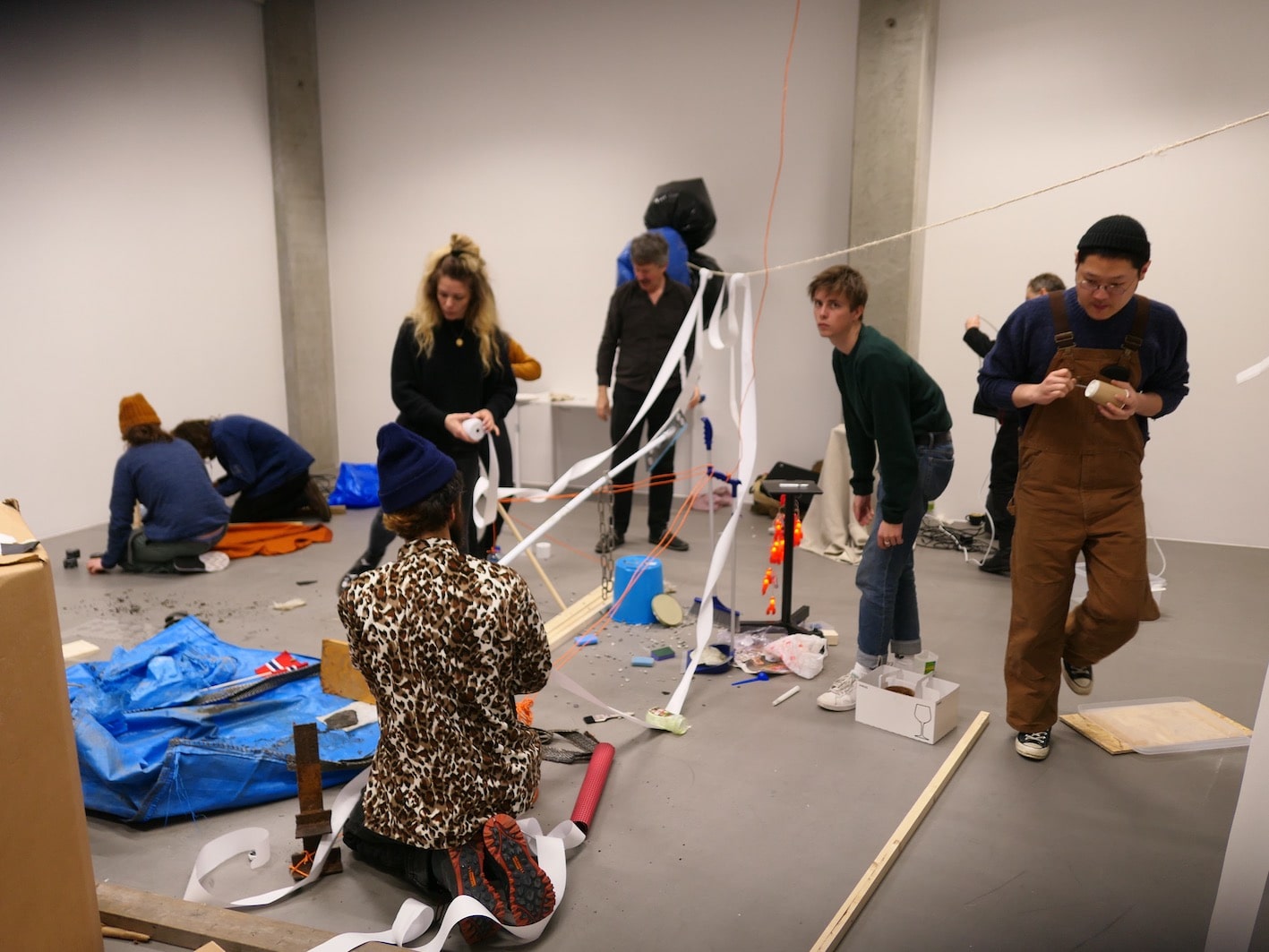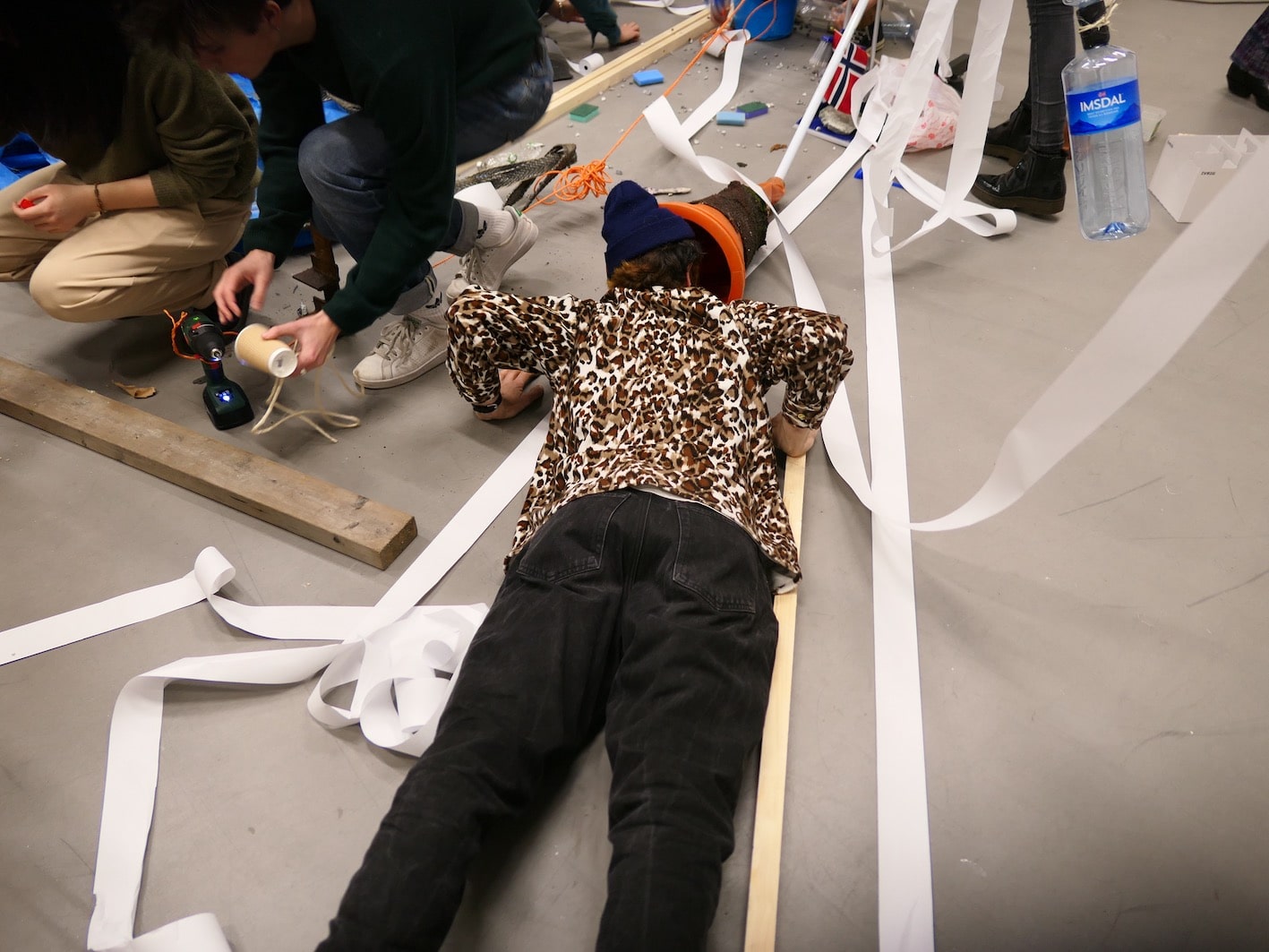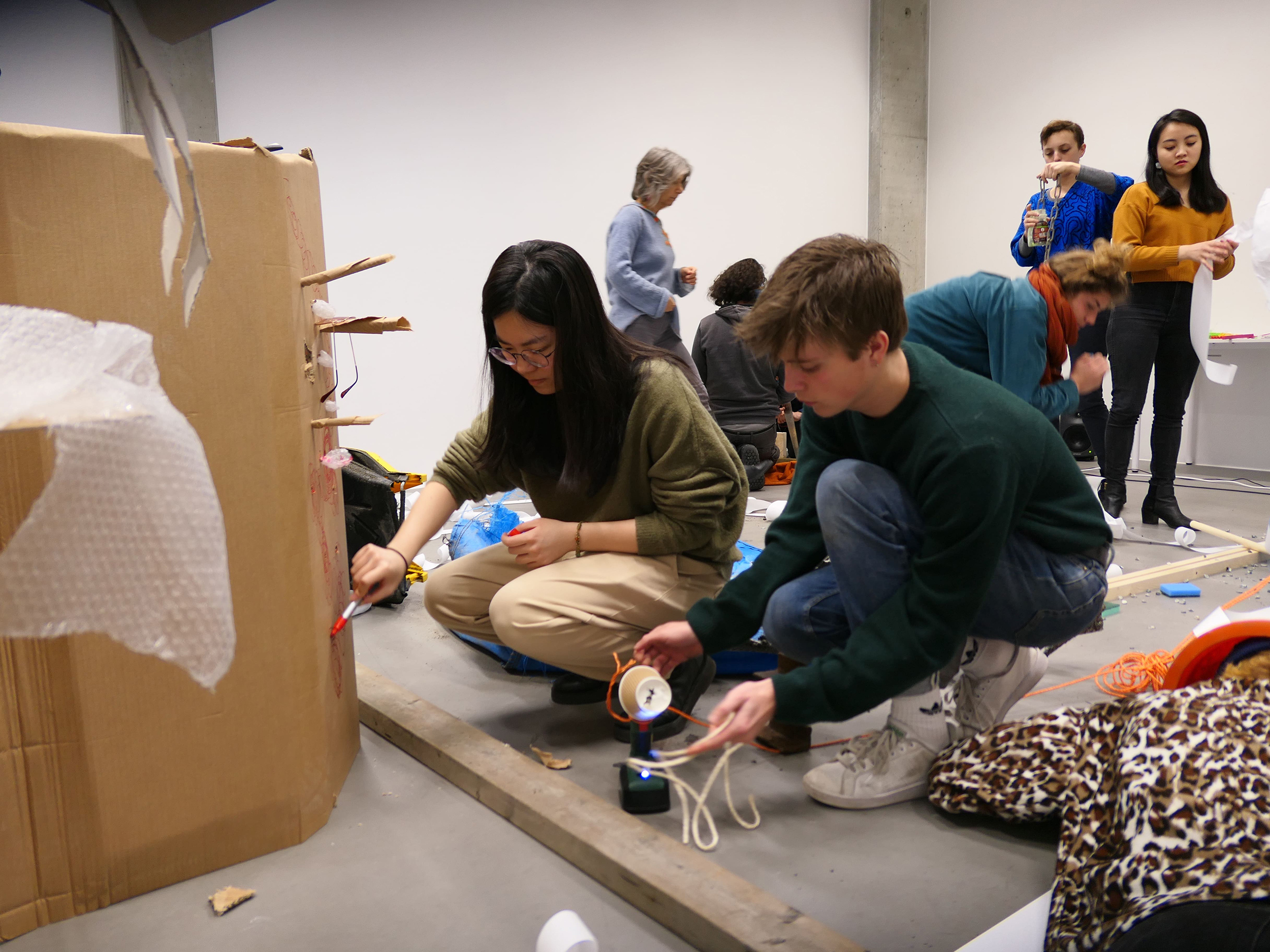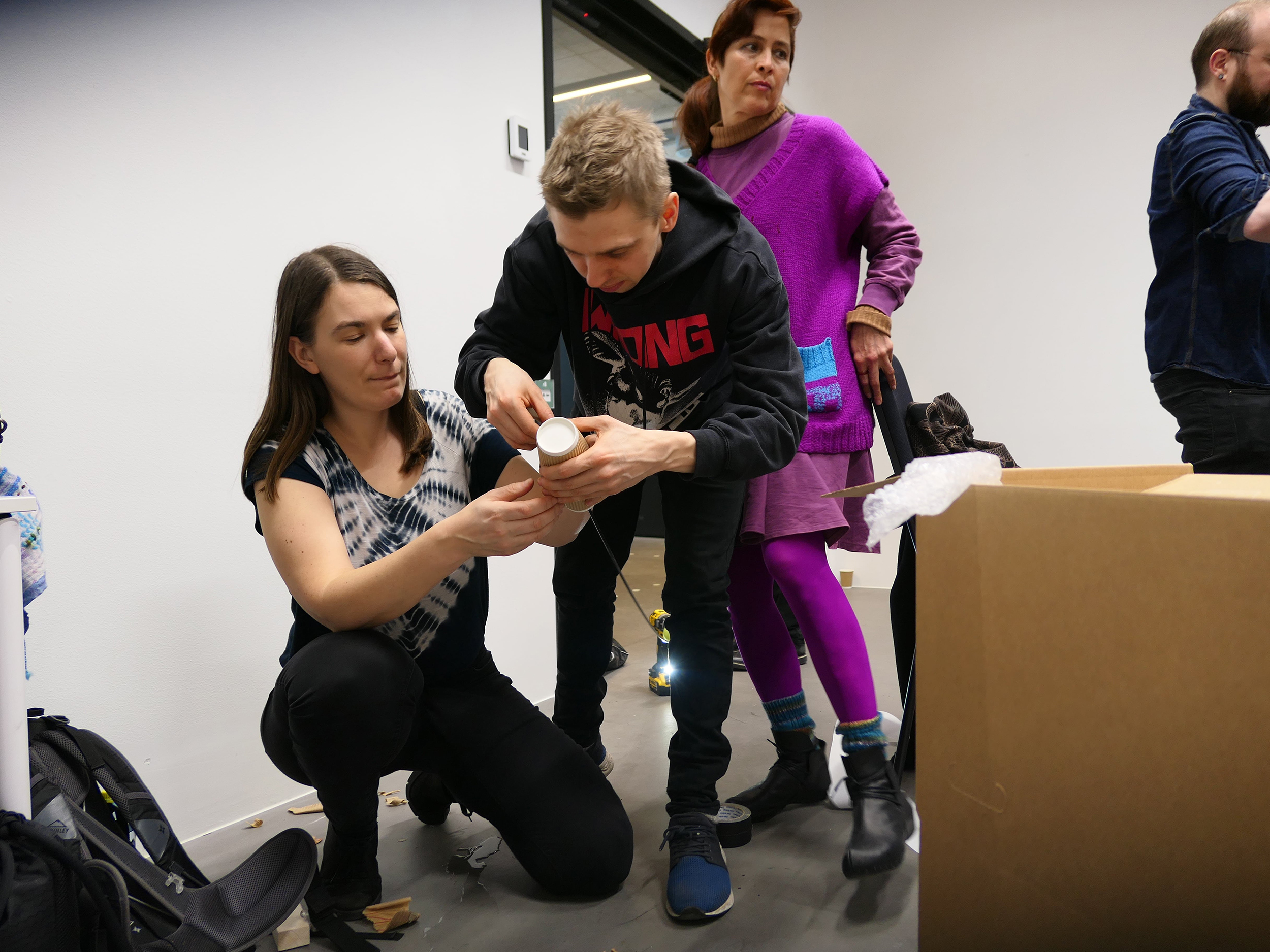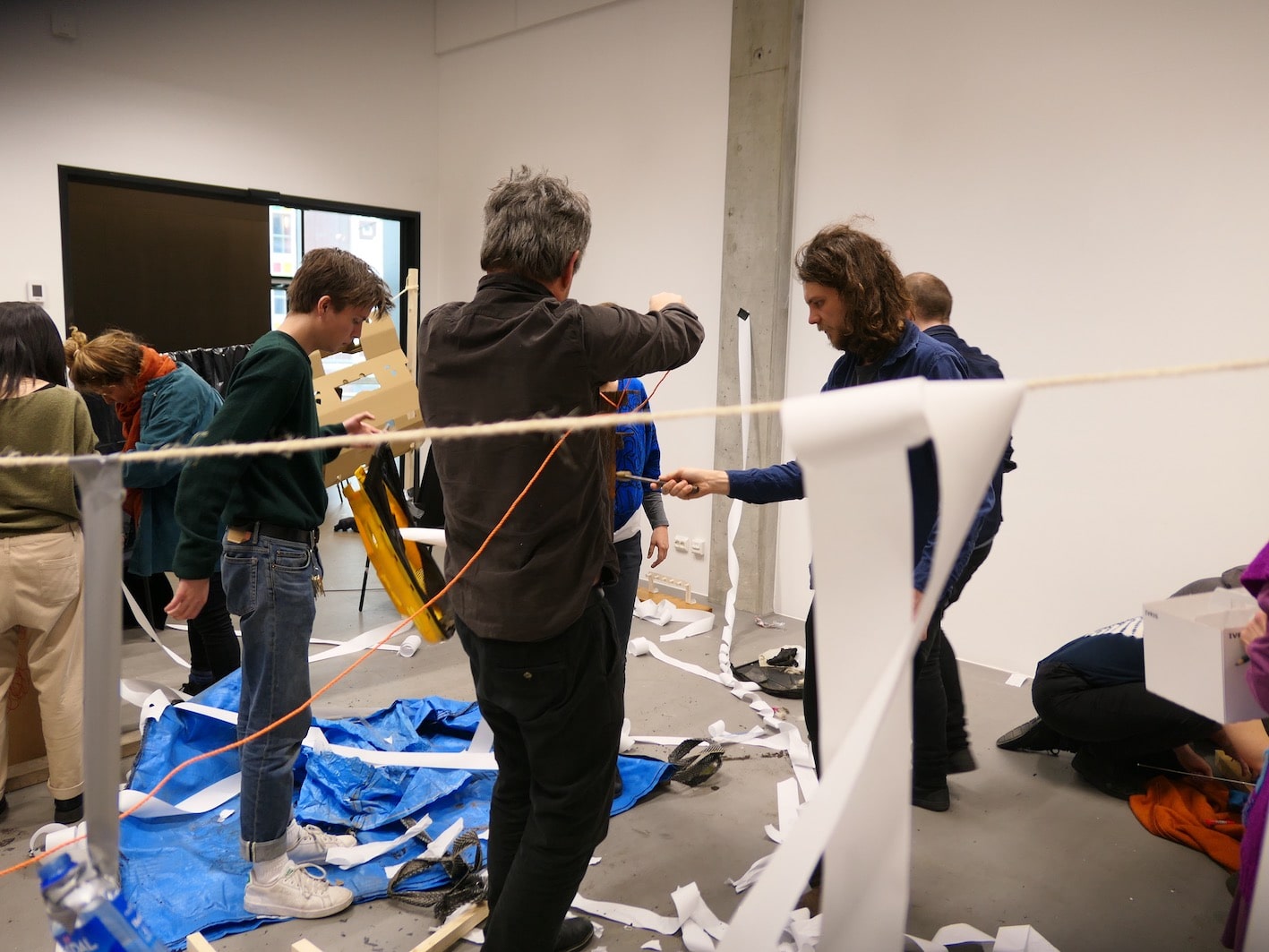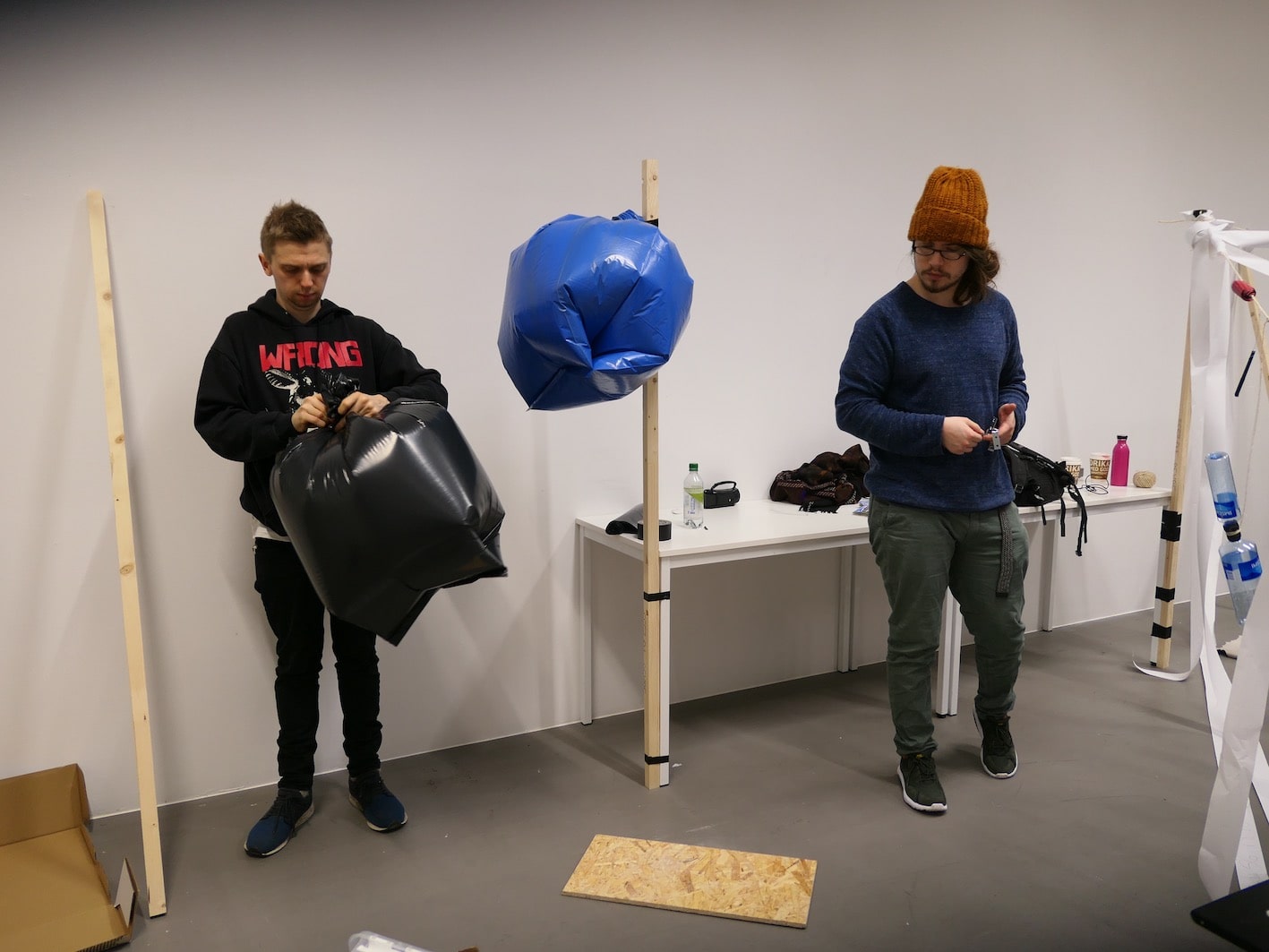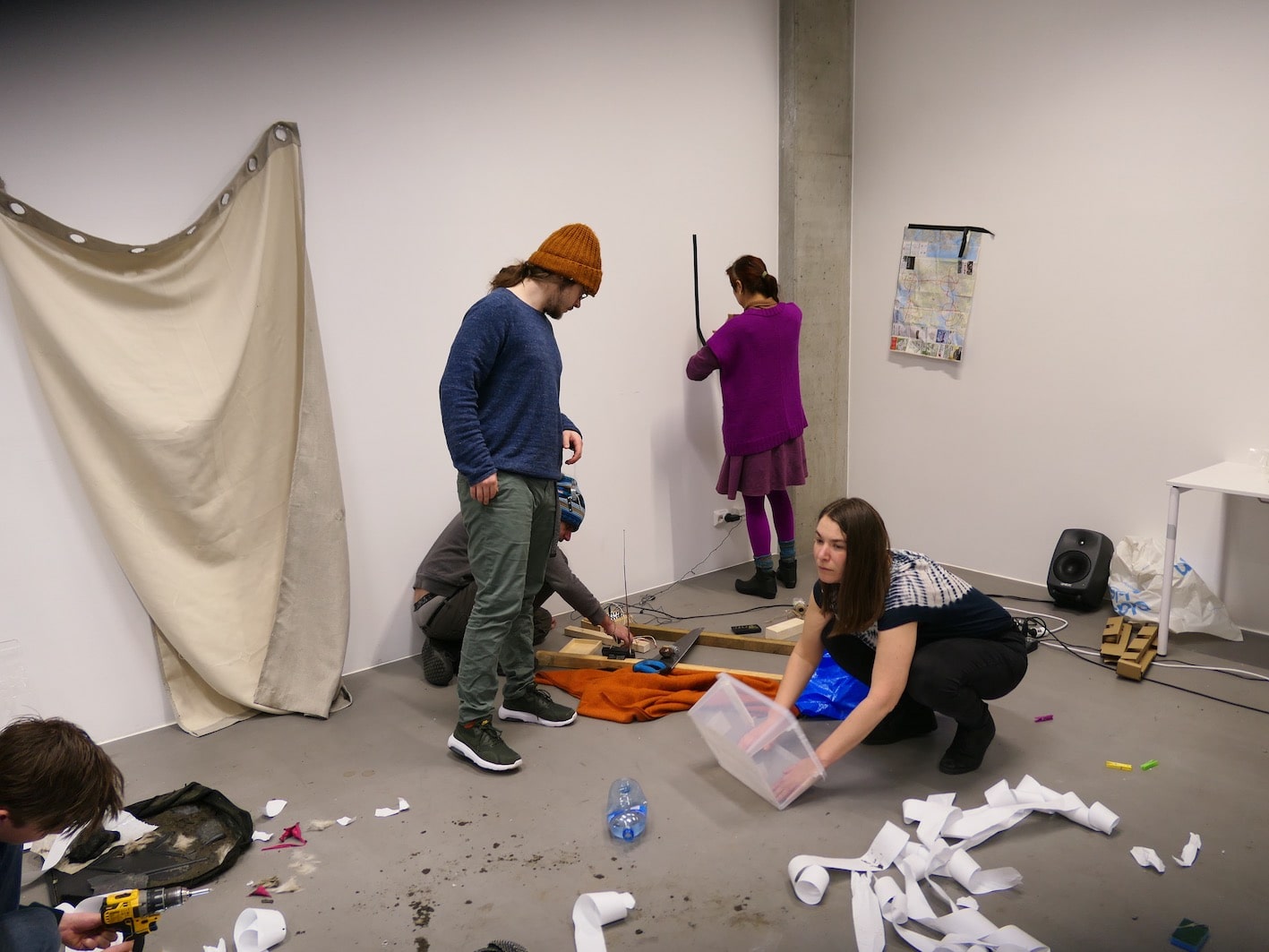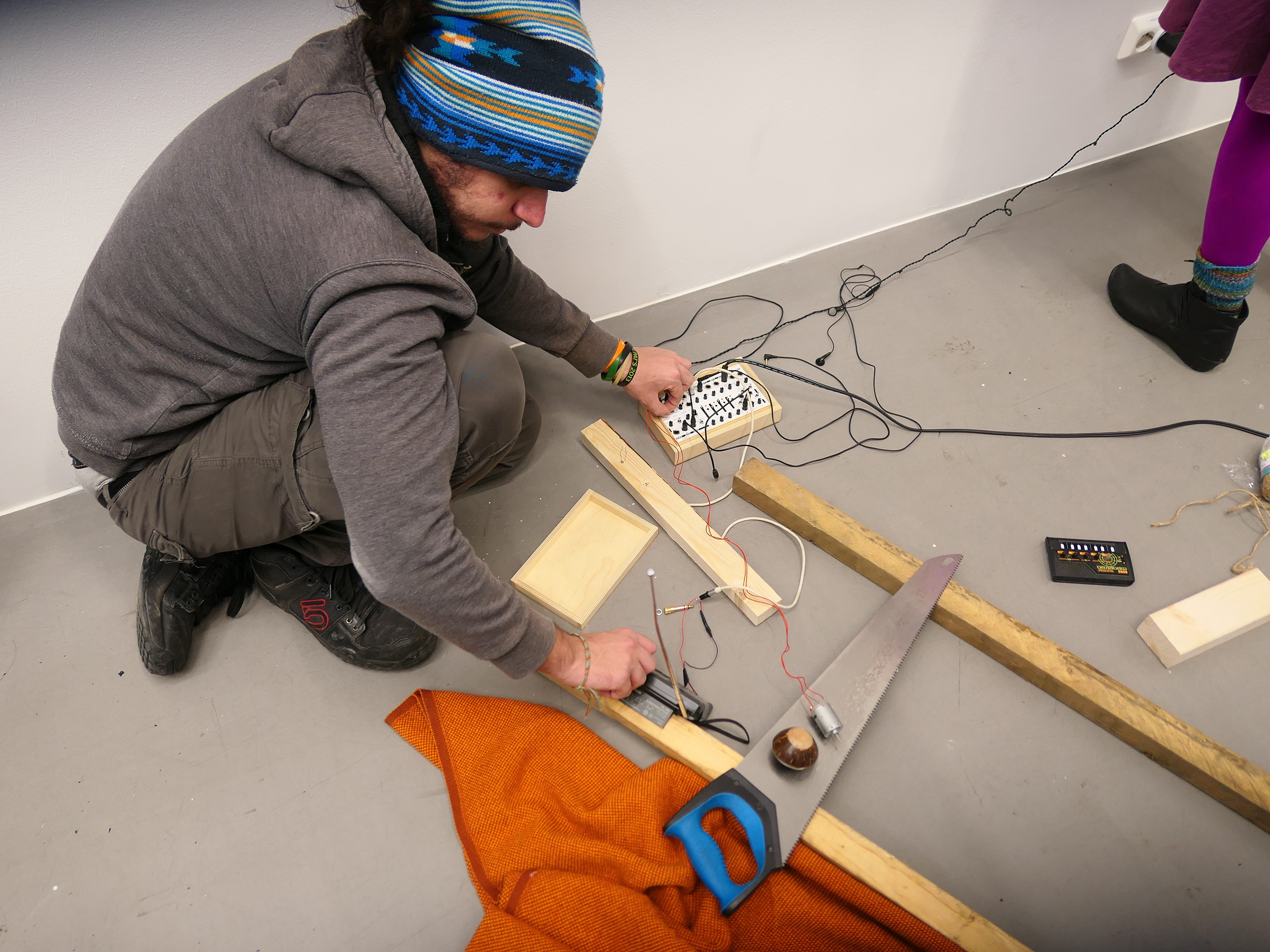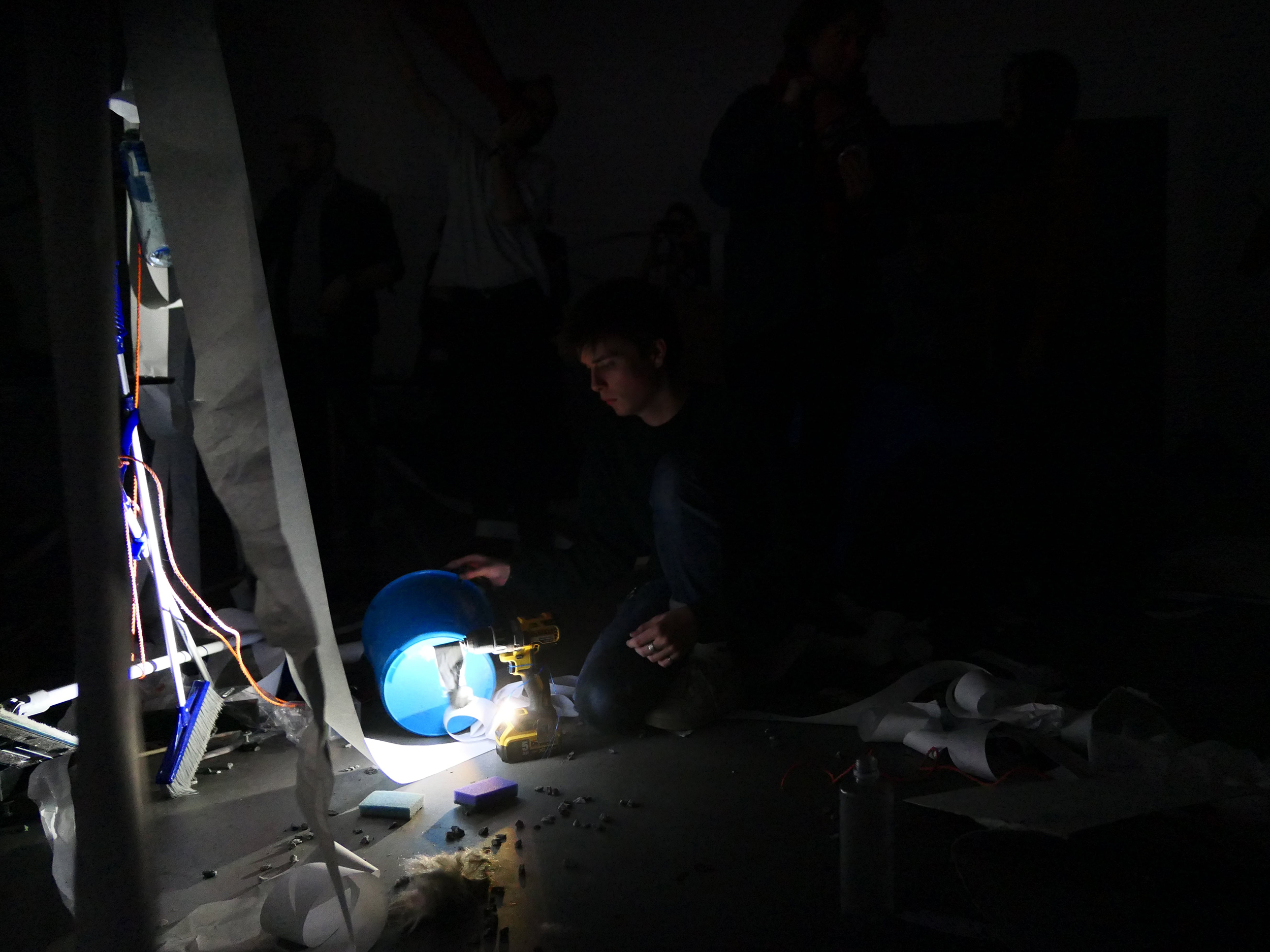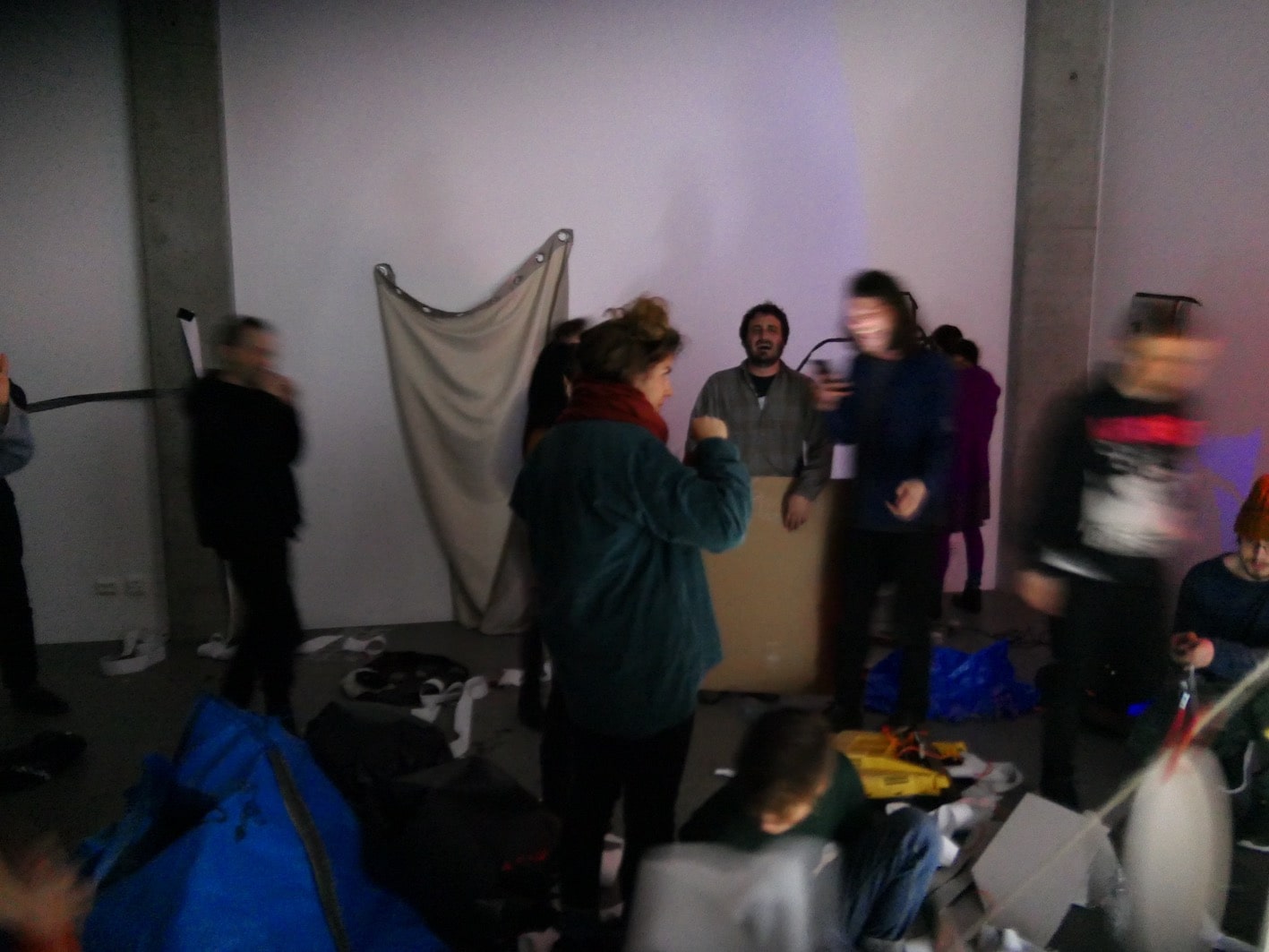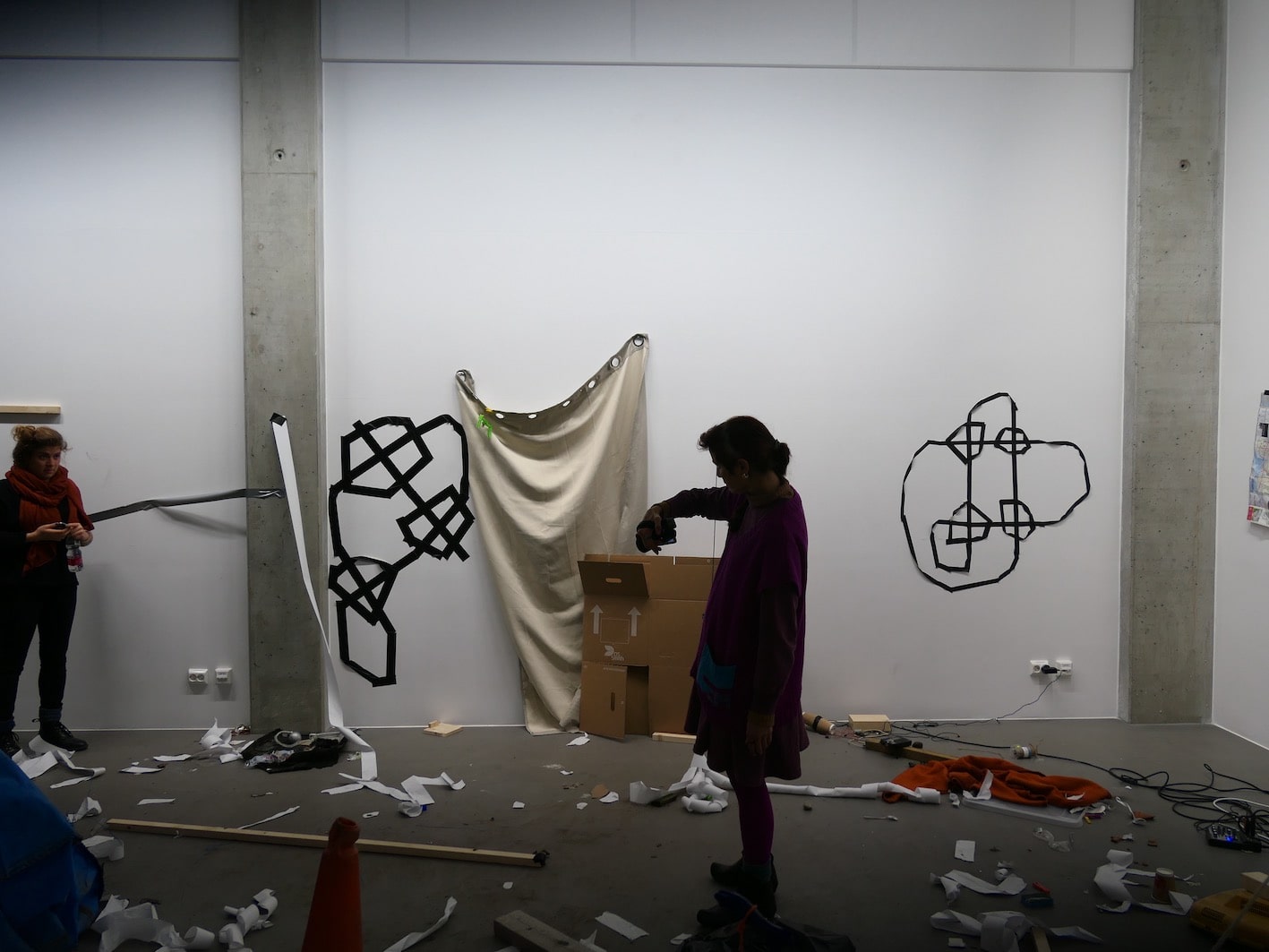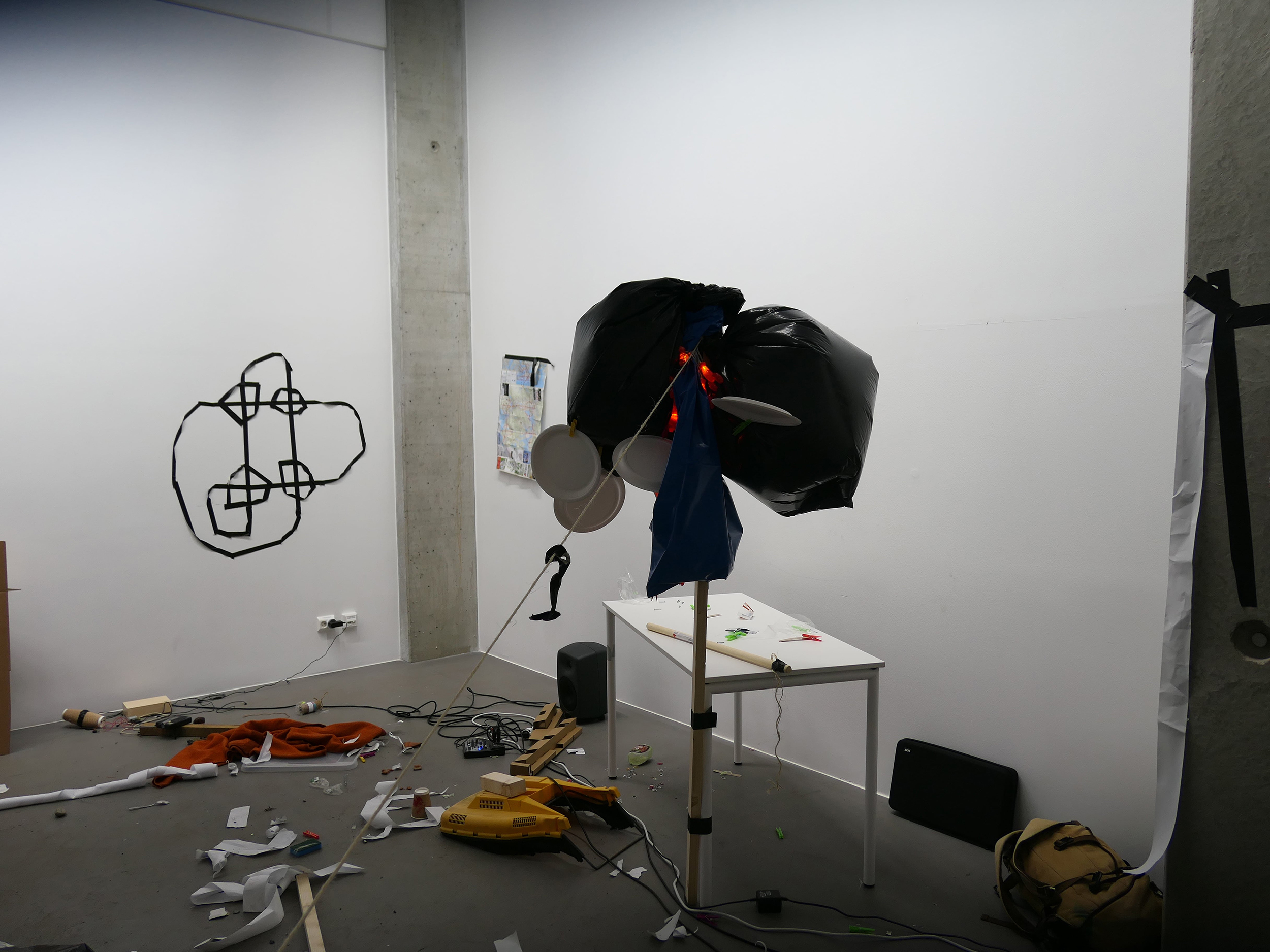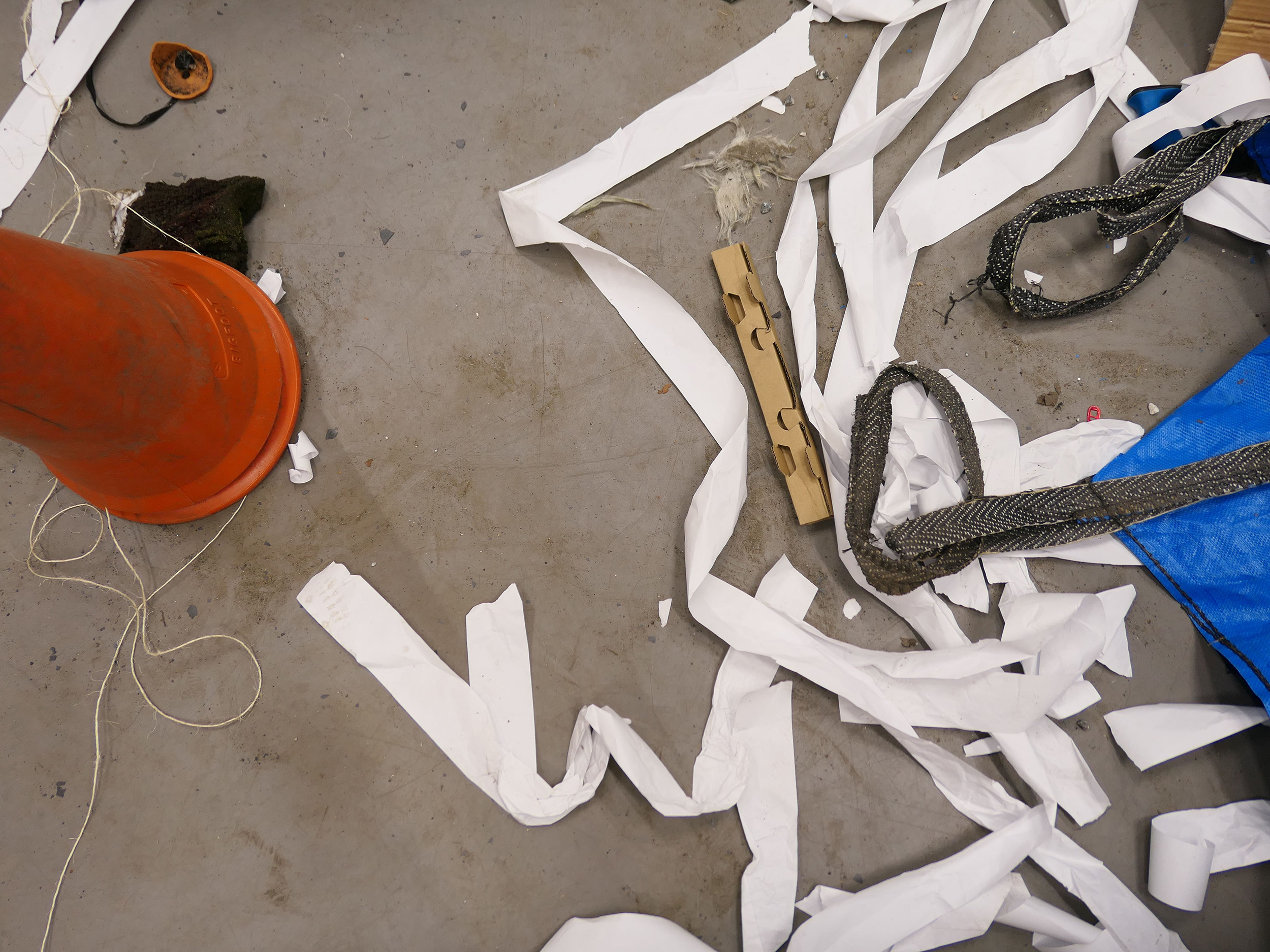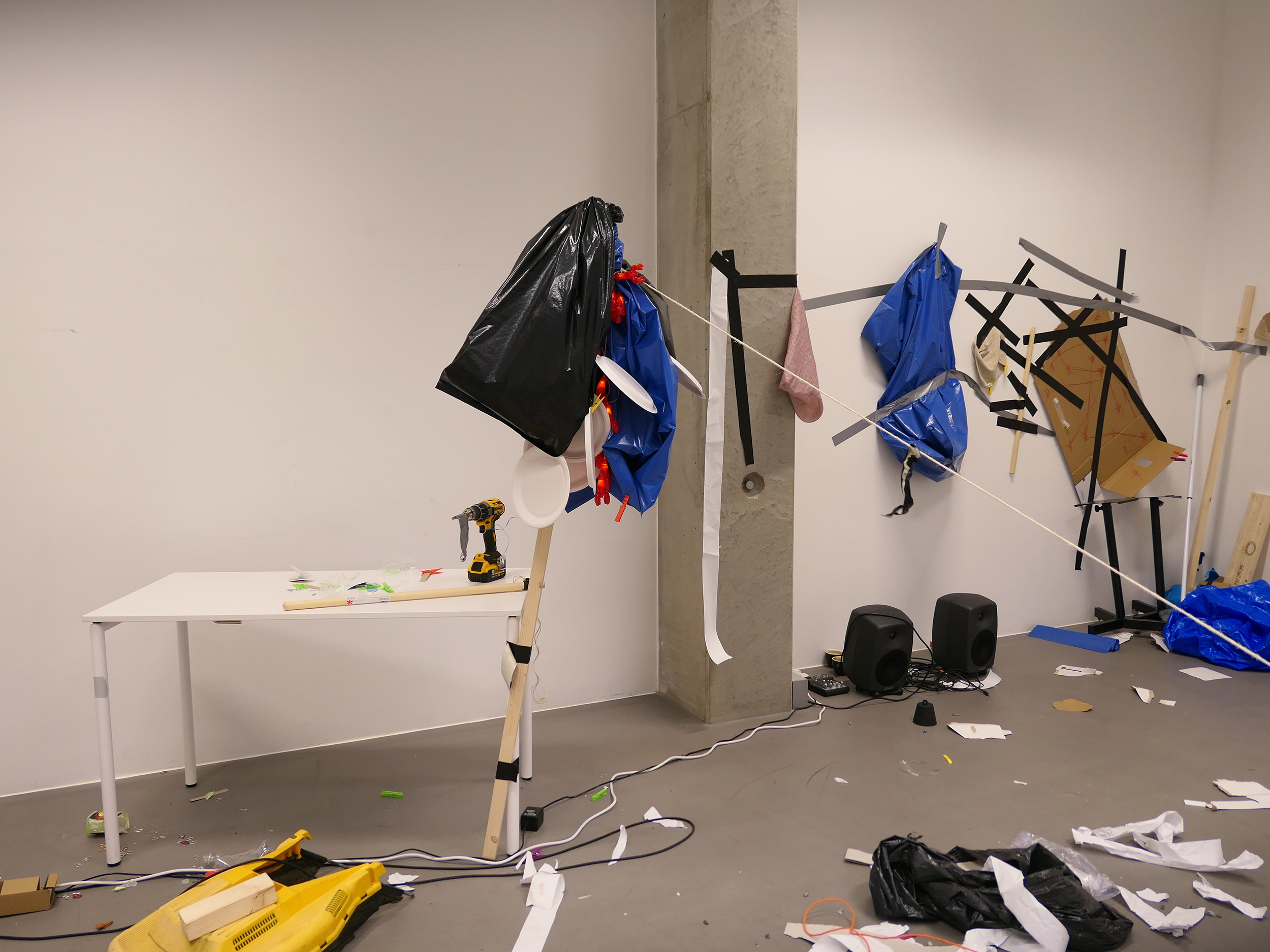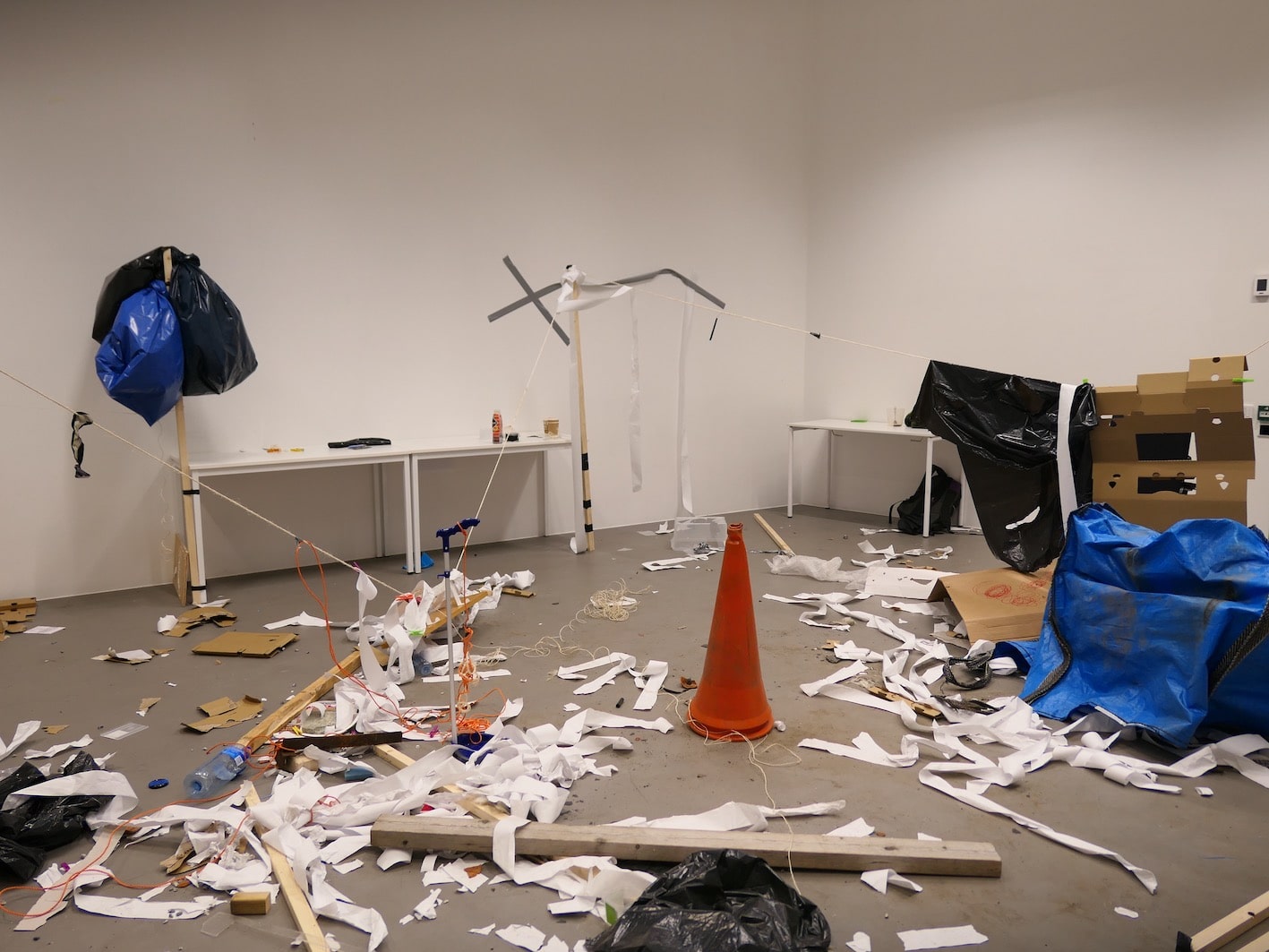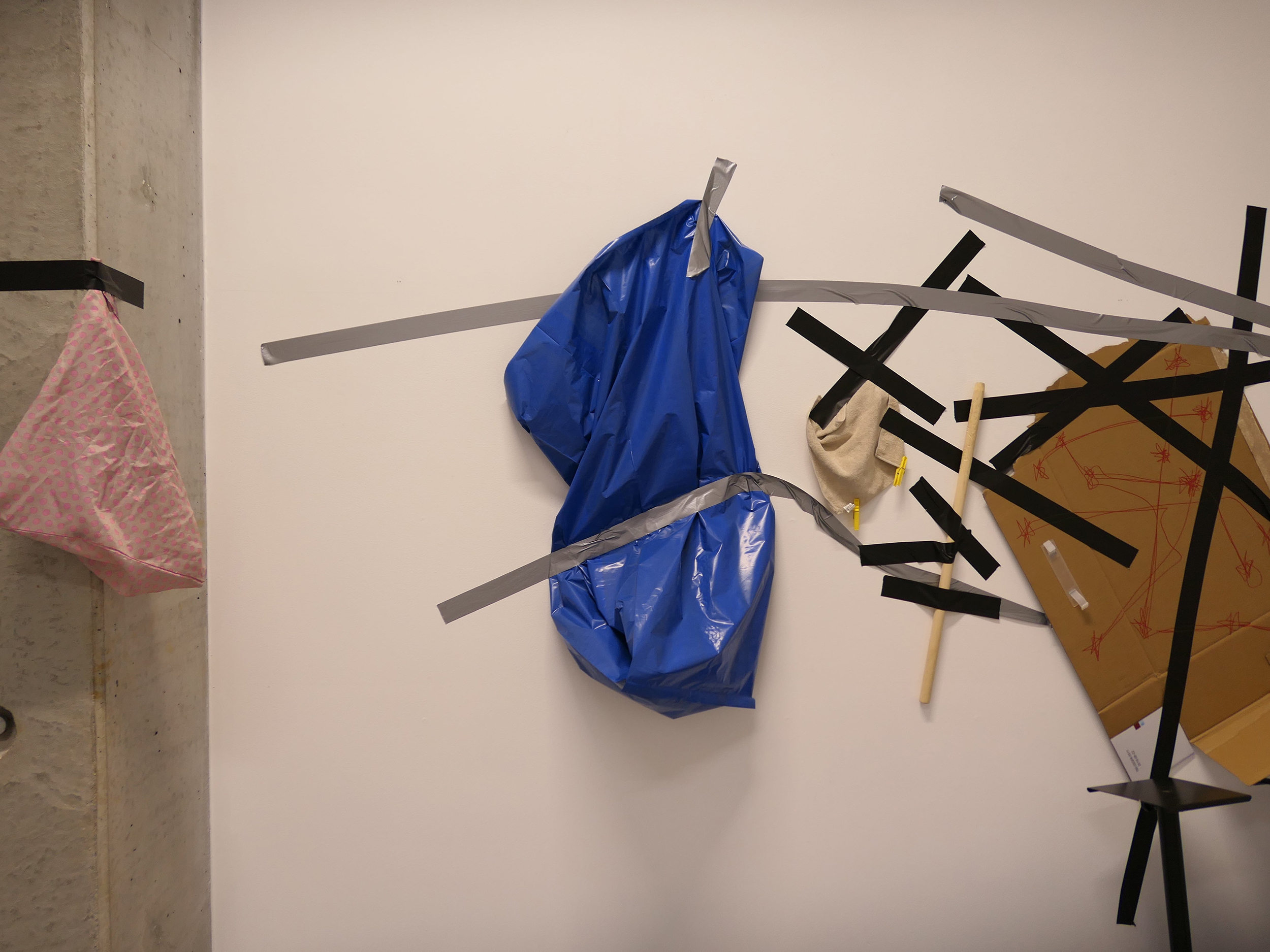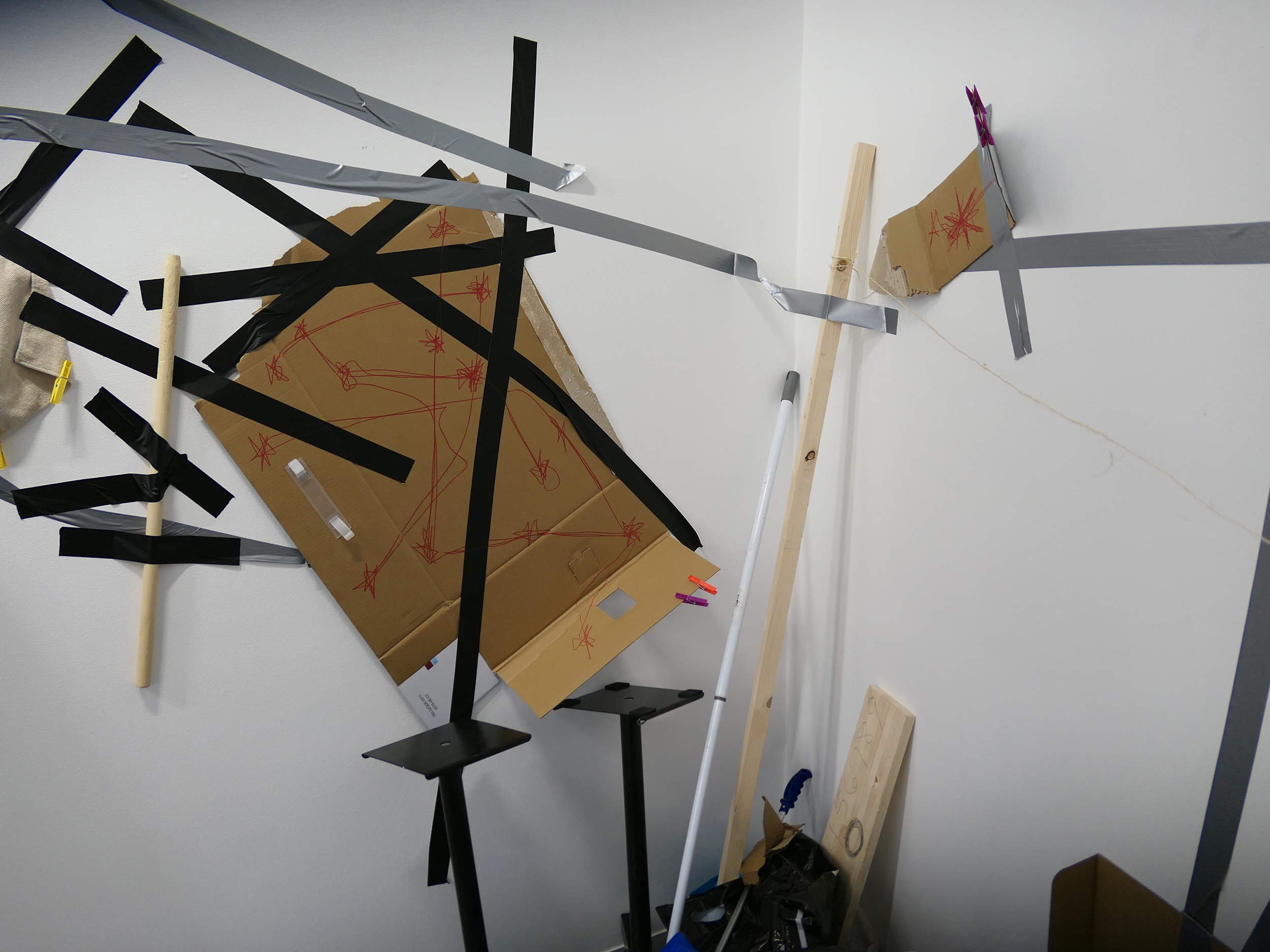Pirate Sound Lab, Bergen edition: March 4 – 8, 2019 / A workshop developed as part of the Sound Network: London-Jerusalem-Bergen, run by Brandon LaBelle, Salomé Voegelin, Thomas Gardner, and Kiki Keren-Huss, including participants from London College of Communications, the Musrara School, and Bergen Art Academy.
The workshop focuses on questions of sound and listening, and how these relate to practices of collaboration. Sound will be understood as a “shared medium” that enables forms of sociability and what Maria Puig de la Bellacasa terms “common-ability”: the capacity to foster conditions of radical sharing. For Bellacasa, this must move us beyond the human as a defining figure of the world. Common-ability instead locates us within a space of togetherness, and leads to practices of “forming kinship” with matters of the world, from things and elemental entities to bodies and creatures.
As a way of developing these ideas, the workshop utilizes the Party as a creative device: celebration, festivity, social gathering, having fun, letting go, decorating and DJing – the Party allows for experimentation with constructing a condition of common-ability, creating a critical space for reworking conditions of singularity, loneliness and precarity. Instead, we work through questions of hospitality and hosting, identity performance and community, felt experiences and the potentialities of new intimacy, all of which are active in the gesture of giving a party. The Party forms a highly creative and energetic field of imagination that is equally a socio-material work: a work that is actively shaped and fueled by musicality and the joy of listening. What would a Party be without Music?
The workshop proceeds through working with sound as a way to capture and speculate upon states of common-ability. This includes identifying aspects of the surroundings with which to collaborate: the building itself becomes a partner in experimenting with audio recording, DJ software, performative gestures, listening activities, and finally, the construction, crafting and presentation of a Party: to think through and join together in throwing a Party, where expressions of DJing function as a general aesthetic and performative method: the DJ as a remixer of culture and a figure that produces kinship with a range of sonic matters. Through this, we may pose the practice of “compositioning” – moving from ideas of musical composition toward that of socio-material compositioning. This allows us to deepen understandings of sound as a common matter migrating across bodies and things, creatures and networks, and how it may perform as an artistic framework for expanded practices as well as identities – what Dimitris Papadopoulos calls: “more-than-social movements”.

